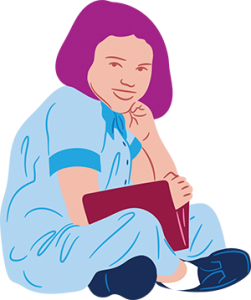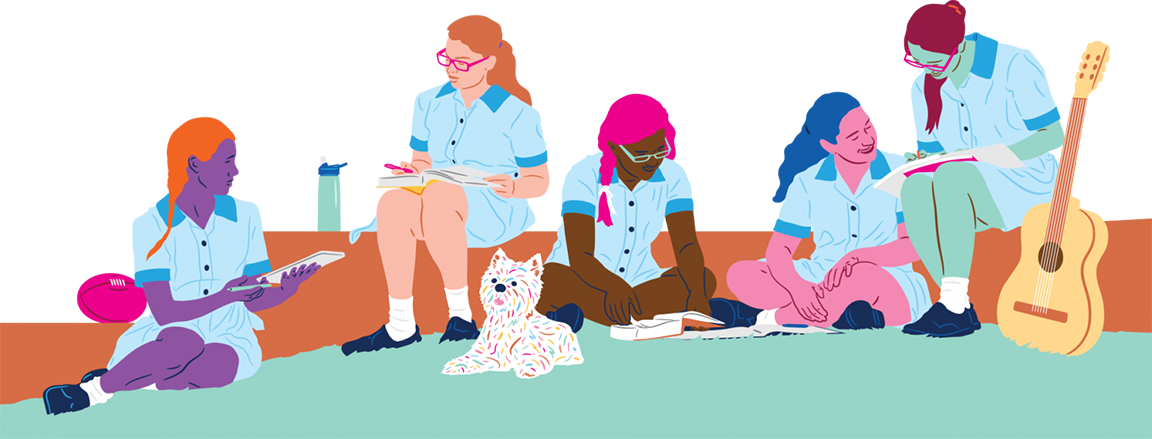Our Head of Junior School reflects on a joyful start to 2026, welcoming new families and inviting students to embrace a year of curiosity, confidence and endless possibility.
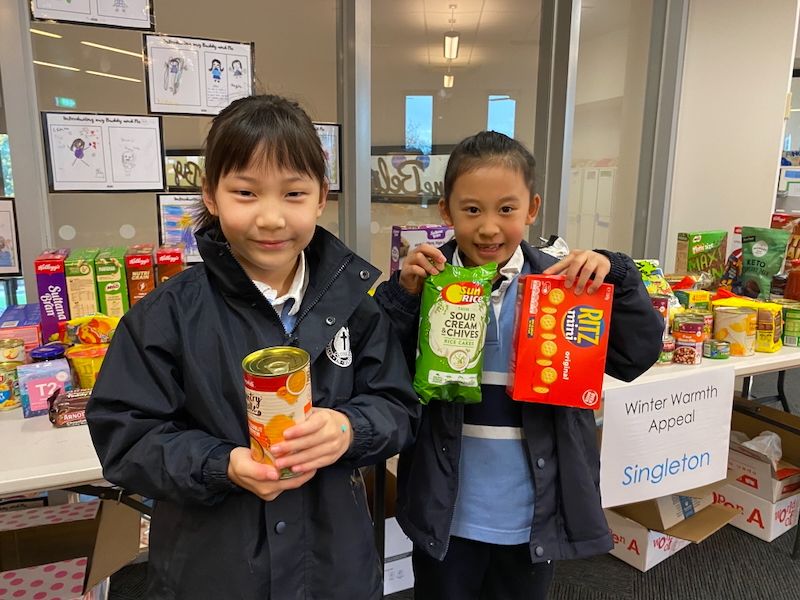
Our Year 6 students had the opportunity to listen and ask thought-provoking questions about what Year 7 will be like next year. Our Head of Middle School, Mr Tom Clark, brought along four Secondary School students: Kaylee P, Candice O, Amy Q and Misaki S. These students provided a blend of past Ormiston students and new students and created a small panel. The Year 6 students were able to ask some questions to these students about Year 7 and Secondary School. Some of the questions included:
It was a wonderful opportunity for our Year 6 students to learn more about Year 7 and prepare for a number of exciting Middle School experiences planned for them in Terms 3 and 4.
Congratulations to Janice P of Year 6, who obtained excellent results in the 2025 Global Contemporary Art and Design Competition. One of her paintings has been selected to participate in the children’s painting exhibition at the Louvre in France in October. We wish Janice all the best for this competition and look forward to seeing her artwork displayed in France.
Recently, in swimming, Cathy G of Year 6 competed against other very talented swimmers from renowned Melbourne Swim Clubs such as Nunawading, Surrey Park, MLC and Ivanhoe. Out of the six swimming events Cathy entered, she achieved some personal best results, including two 1st-place finishes. Cathy is currently training for the 2025/26 Victorian Metro Short Course Championships, which will be held in July. Cathy has qualified for 8 of the 9 events in her age group, which is an outstanding effort. We wish her all the best for her upcoming competitions.
I would like to wish all our Ormiston families a wonderful two-week holiday break. I look forward to all EL3-Year 6 students returning to school on Tuesday, 22 July, and ready for Term 3.
Paul Donohue
Head of Junior School
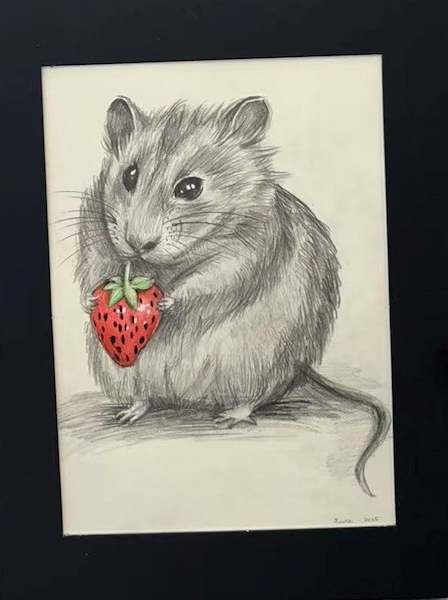
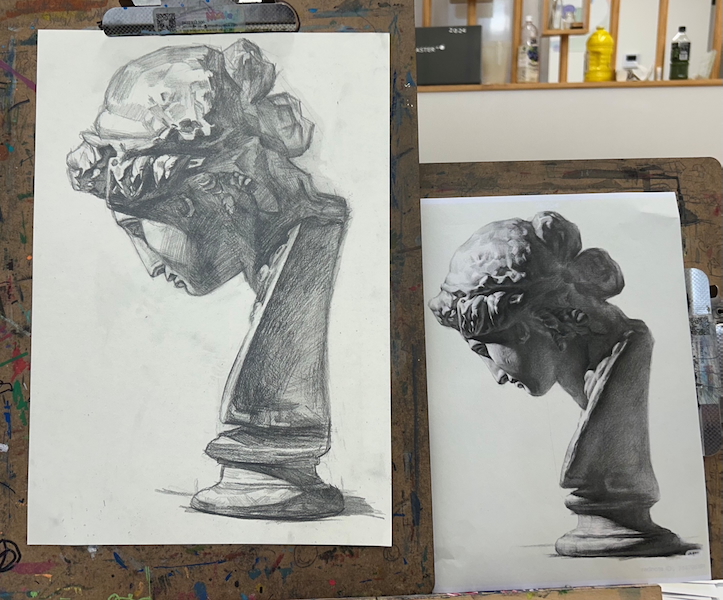
Curiosity – the eager wish to know or learn something
Creativity – the ability to use or produce original and unusual ideas
Cambridge Dictionary
Abundance mindset – the belief that there is enough for everyone to share. An abundance mindset views life’s possibilities as limitless, encouraging optimism and generosity as we approach situations and challenges.
Isabel Fetell Lee – Joy Researcher
On 11 June, Camberwell Girls hosted the Horizon Parent Education seminar – Growing Curious and Creative Mindsets. Presented by Dr Charlotte Forwood, Director of Learning Design and Development at Camberwell Girls, this interactive session explored the role of play, playfulness, oral and written language and relationships in the development of curious and creative mindsets. The place of technology was also discussed.
Key takeaways included:
A Padlet with links to slides, readings and other resources can be accessed below.
The following infographic provides parents with key information and tips for supporting their child to grow a curious and creative mindset.
Dr Charlotte Forwood
Director of Learning Design and Development
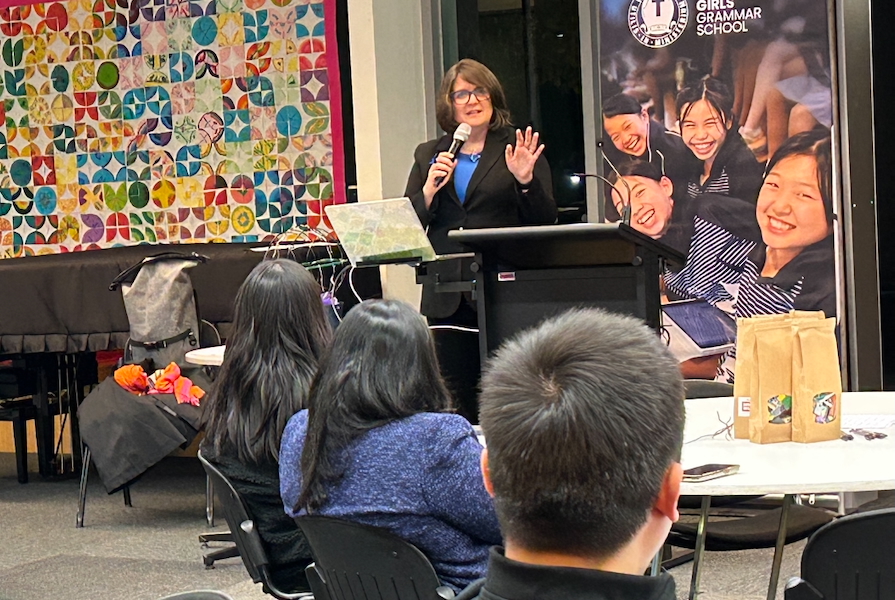
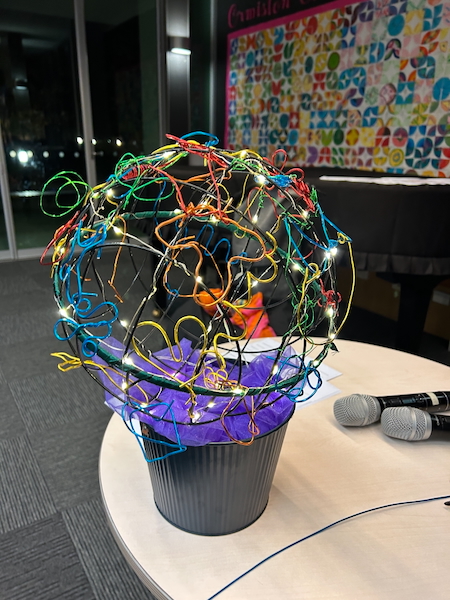
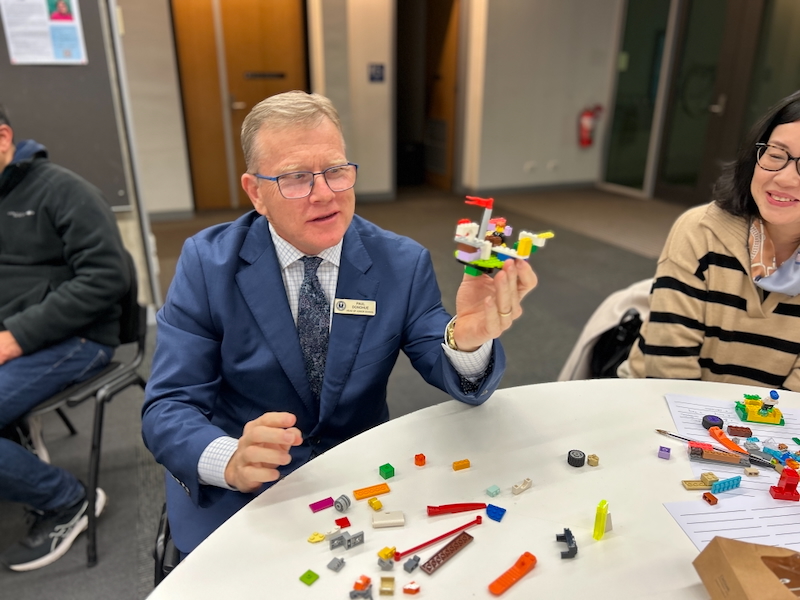
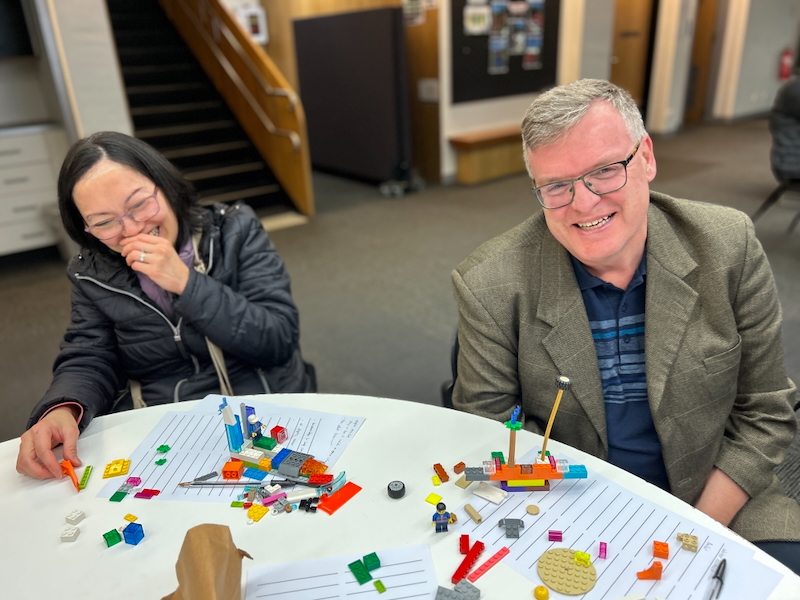
EL3 celebrated the Winter Solstice, which fell on Saturday, 21 June this year. The children learned that the Winter Solstice is the shortest day of the year and that it will be the longest and darkest night.
“It’s Winter Solstice” – Anne
“It will get warm” (after the Winter Solstice) – Reia
We learned a new song called ‘Lanterns on the Banksia trees’ and discussed how once the shortest day has been and gone, we will grow closer to Springtime, Poorneet season, and sunnier and longer days.
“Lanterns on the banksia trees
Growing there so cheerfully
Can you keep the dark away
Lovely winter flowers
Wattles with their tiny suns
Underneath the spotted gums
Warm our hearts till Springtime comes
With its sunny hours”
To help us get through these cold winter days, we baked delicious sun bread to keep us warm and cosy. We also encouraged the children to share their understanding through multiple ‘languages’, such as creating visual representations of sun bread using crayons and markers, in addition to coloured salt dough that we made together as a class.
Eva Szymanski
Early Learning 3 Teacher
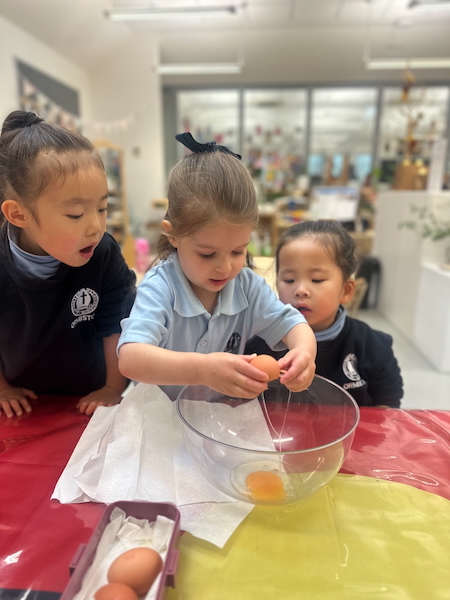
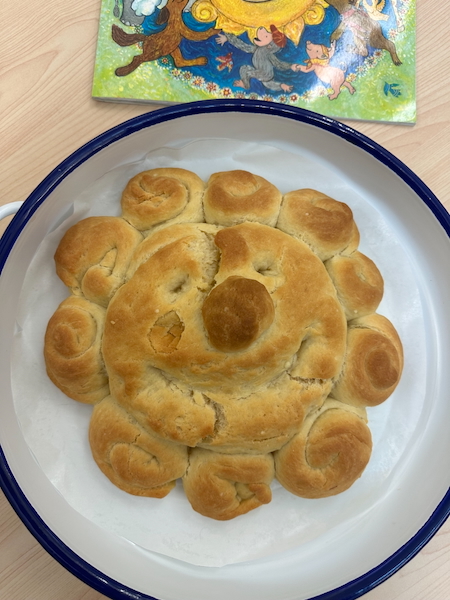
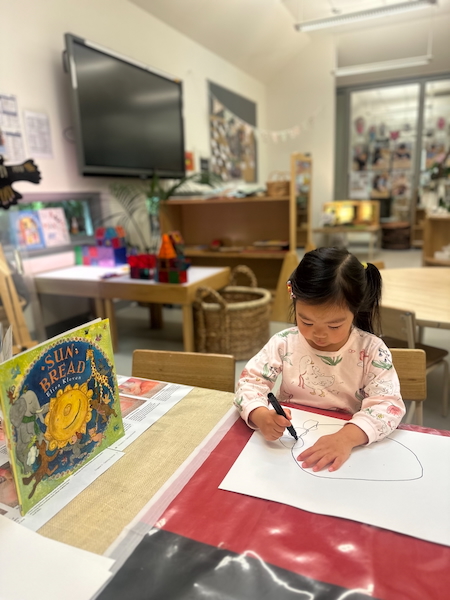
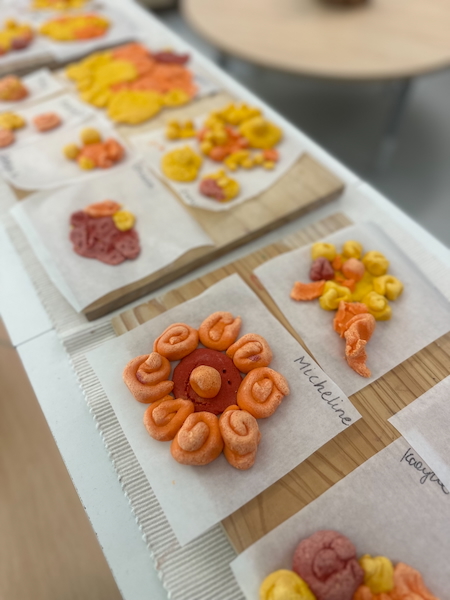
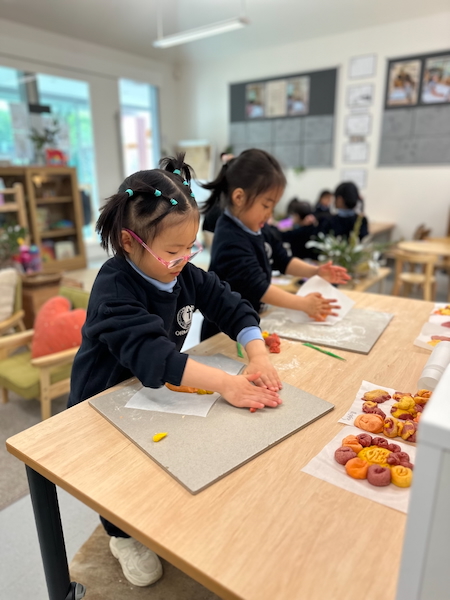
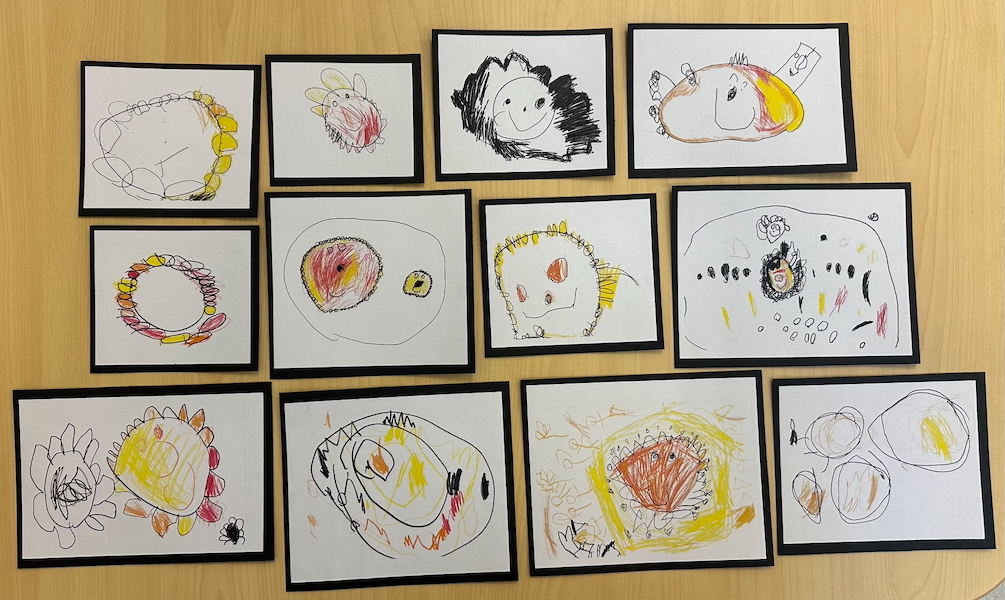
Once again, our Winter Warmth Appeal has been a great success thanks to the generosity of Early Learning and Junior School families. This annual Service-Learning project is dedicated to assisting Anglicare in its mission to help those in need over the winter months. Led by our Year 6 Social Service Leaders, Faye L, Wendy Z and Alice Z, the Student Council coordinated this project, which reflects our school motto, ‘Utilis in Ministerium’ (Useful in Service). All students from Early Learning 3 to Year 6 were encouraged to contribute and bring in non-perishable food items for donation.
The Winter Warmth Appeal will conclude on Friday, 4 July, with a special assembly organised by Reverend Helen Creed and attended by Penny Mitchell from Anglicare. Students can wear their pyjamas to school and will find out the final winner of the bonus House points competition – an enjoyable way to finish off an important school community project!
Selena Reedman
Year 3 Class Teacher
Liz Warren
Year 1W Class Teacher
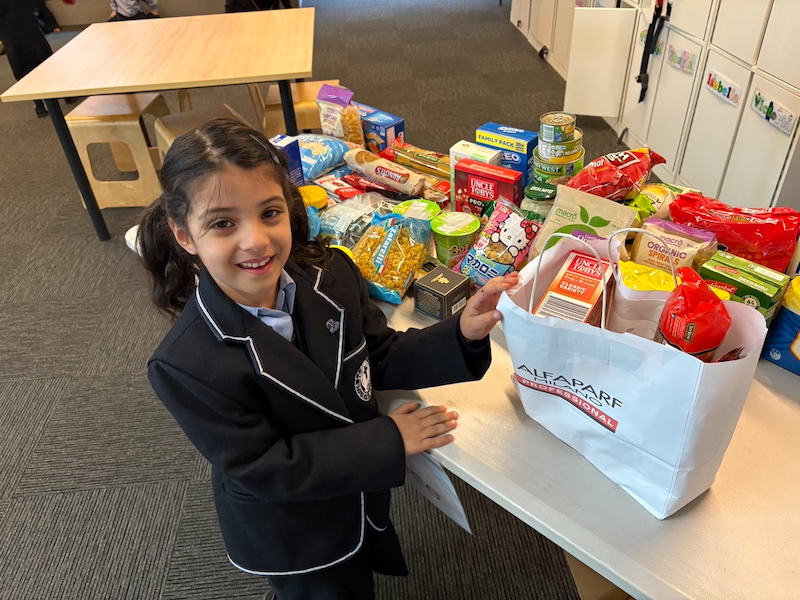
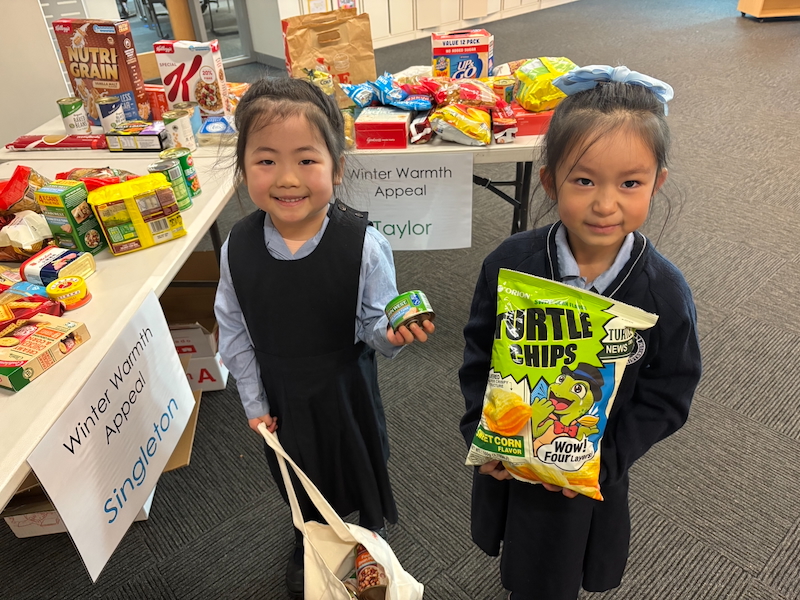
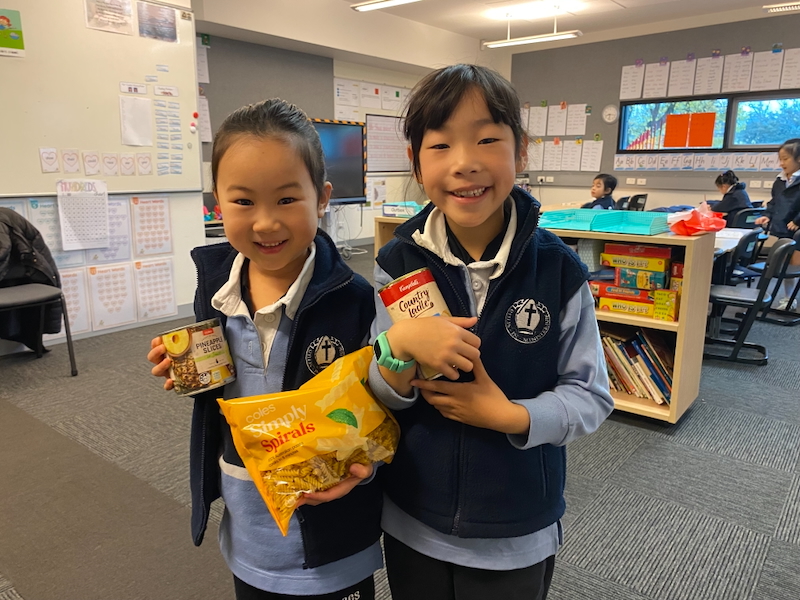
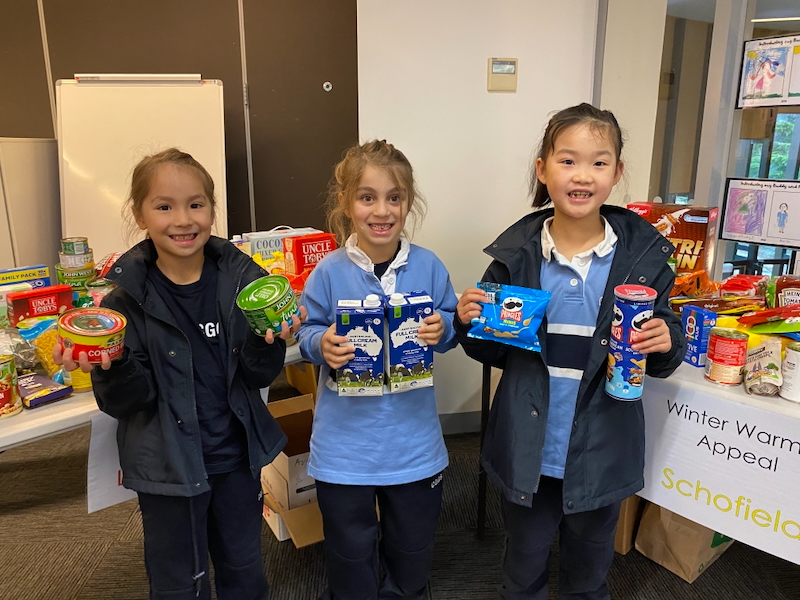

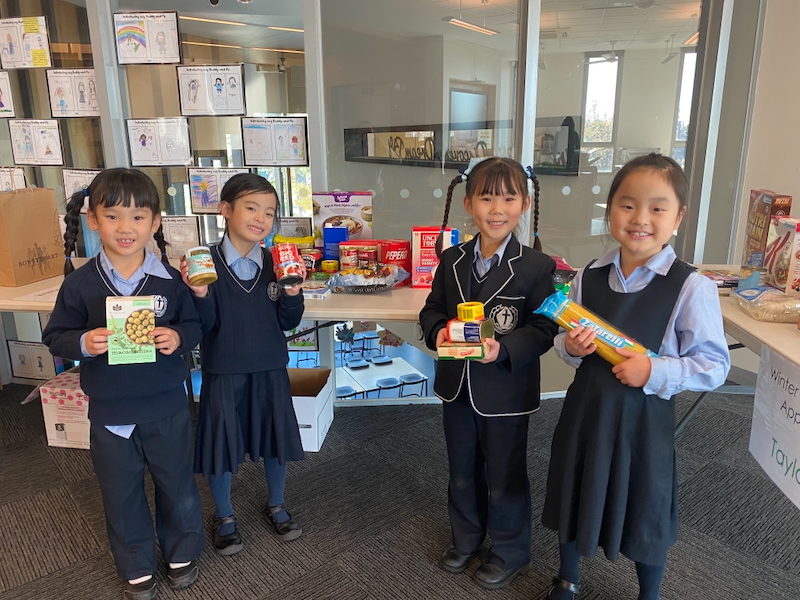
This semester, our Sustainability Squad leaders have led Ormiston. Annie S and Sienna T have worked with students from Years 1 to Year 5, organised meetings, and continued to work with Martin, our Gardener, to care for the school’s gardens.
Additionally, the squad has taken responsibility for the Junior School composting program. The sustainability squad representatives have worked tirelessly to encourage their friends to reduce food waste by placing leftover fruits and vegetables in a classroom container.
This has served as a learning opportunity as students compost the food and turn it into a resource for our outdoor learning area, the veggie patch. Sienna and Annie created three activities to promote Environment Week at Junior School. On Tuesday, students participated in a Scavenger Hunt. The letters were jumbled, so participating students had to make a connection to the message at the assembly about biodegradable products. Younger students had a chance to participate in their own scavenger hunt on Friday.
On Wednesday, students from Foundation to Year 6 were encouraged to trace their hands and write a message to promote sustainable practices. Sienna and Annie used this as an opportunity to talk about what you can do at home. Here were some of our ideas:
Craig Goodwin
Year 6 Class Teacher
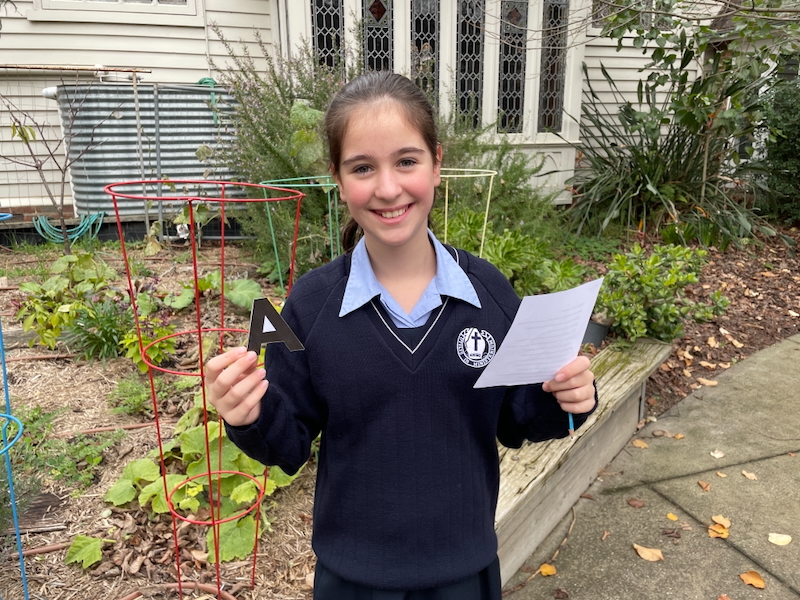
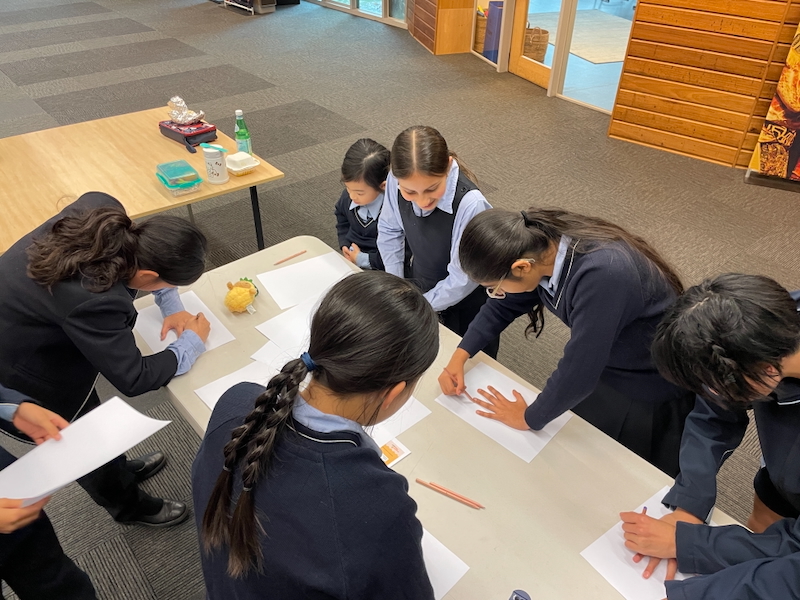
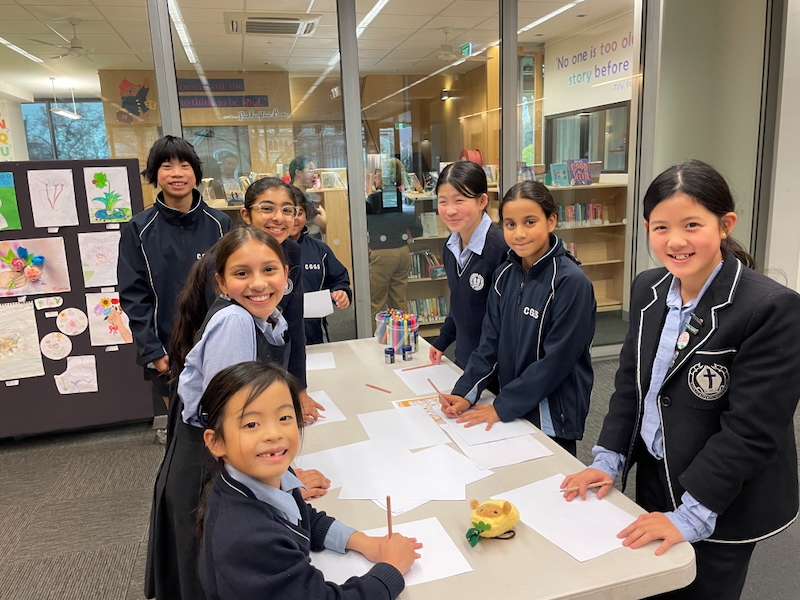
At Ormiston, we foster public speaking skills at all year levels by giving students numerous opportunities to engage in class discussions and deliver regular oral presentations.
Our youngest students start by building their confidence and voice projection during Talk Time. By Years 3 and 4, students are tasked with creating more sophisticated presentations that explore complex ideas and opinions. In Years 5 and 6, they are introduced to formal debating structures, honing their critical thinking, research skills, and persuasive writing to craft concise arguments. Debating not only enhances students’ literacy skills but also nurtures empathy. To effectively counter the opposition, debaters must anticipate and understand potential arguments, which requires the consideration of different perspectives.
Four Year 6 students proudly represented Camberwell Girls this term in the Australian National Virtual Debating Competition. This event offers students a unique chance to enhance their public speaking and debating skills by connecting with schools across Australia. Emma Z, Claire Z, Angela W, and Ellie L devoted themselves to meticulously preparing for each debate. They worked collaboratively to research the topic and gathering evidence to support their arguments. In their first-round debates, the students tackled a variety of compelling topics, such as whether parents should be penalised for their children’s truancy, should students provide biannual reviews of their teachers, and whether all packaging should be mandated to be biodegradable or compostable.
Expert adjudicators oversee all debates and provide valuable feedback to help students improve their debating skills. The Ormiston team faced three interstate teams and successfully persuaded the adjudicators in two of the debates. The Year 6 teams were praised for their strong public speaking skills and received constructive feedback on enhancing their arguments, rebuttals, and persuasive techniques. The students are keen to put this advice into action in the next stage of the competition.
Nancy Robottom
Deputy Head of Junior School
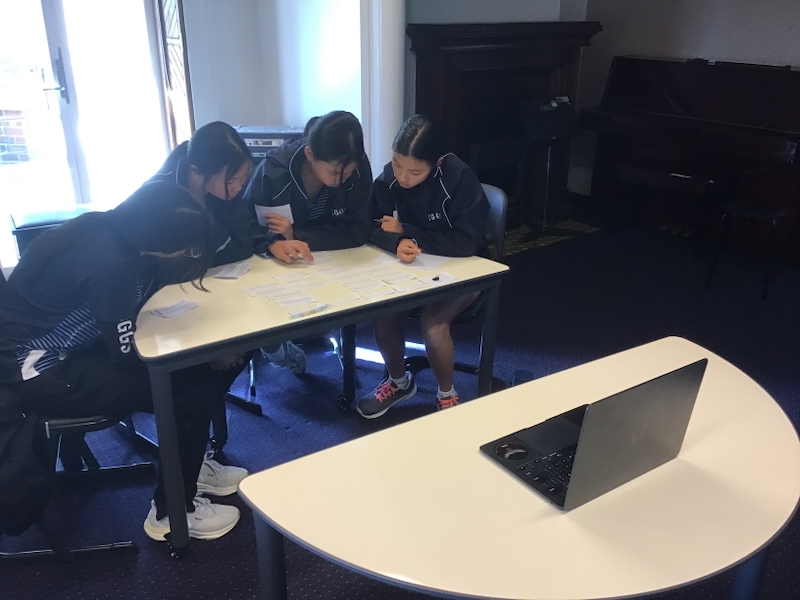
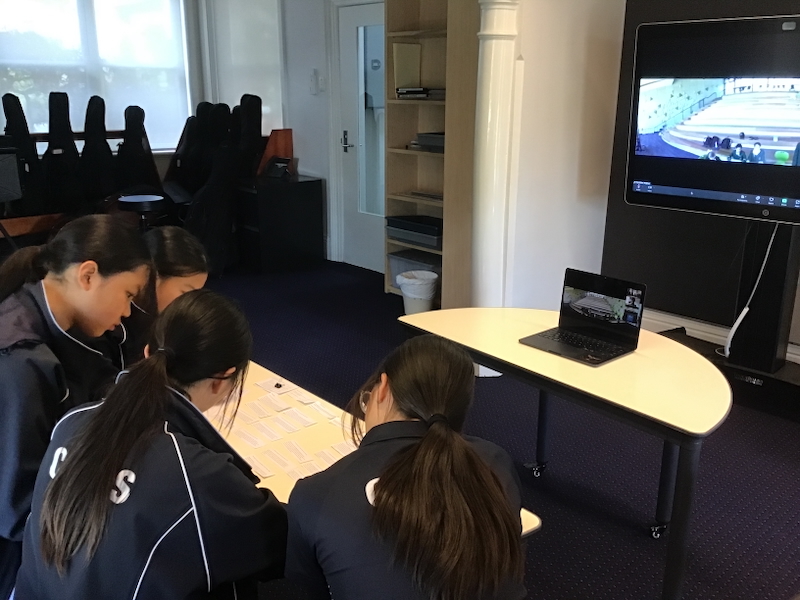
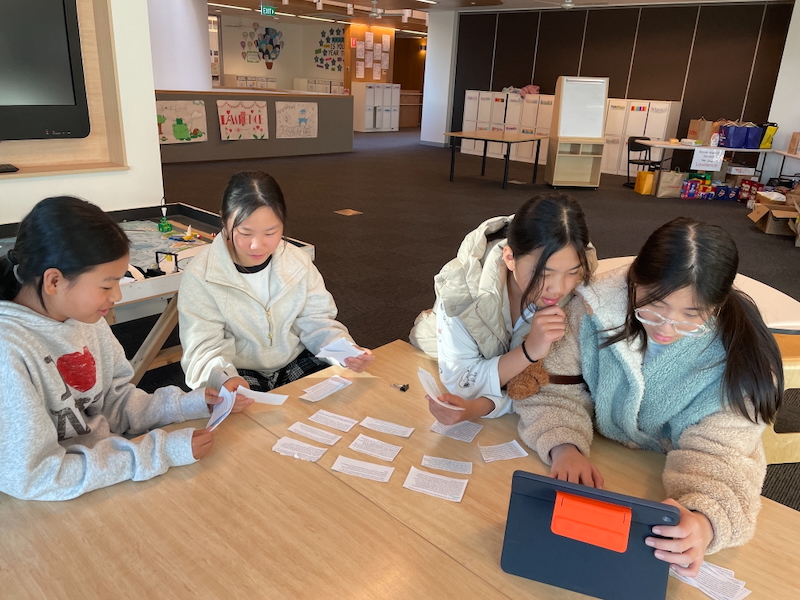
Our Head of Junior School reflects on a joyful start to 2026, welcoming new families and inviting students to embrace a year of curiosity, confidence and endless possibility.
More than 400 parents came together for the Annual PFA Welcome Evening, celebrating connection, conversation and a warm start to the year as a community.
A new school year begins with the energy of new students, exceptional VCE results, and important developments shaping the year ahead at Camberwell Girls.
